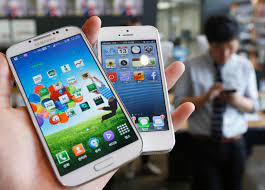Tokyo Court Rejects Apple's Claim Against Samsung
A patent infringement suit Apple had filed against Samsung was dismissed by a Tokyo district court Friday in yet another of the many legal battles in progress around the world between the two consumer-tech giants.
The suit, filed one year ago, claimed that Samsung’s Galaxy S and Galaxy S2 smartphones and the Galaxy Tab tablet infringed patents on iPhone technology for synchronizing music and video between computers and smartphones or tablets.
The Japanese court’s ruling against Apple’s claim comes just a week after Samsung was hit by a $1.05-billion jury verdict in their litigation in the Federal District Court in the Northern District of California. The two companies are engaged in litigation in nine countries and four continents. Surprisingly, China — the world’s biggest smartphone market — isn’t one of the nations hosting their legal battles.
Samsung’s shares had plunged 13% following the San Jose verdict but rose after the Tokyo ruling.
“We welcome the court’s decision, which confirmed our long-held position that our products do not infringe Apple’s intellectual property,” Samsung said in a statement.
The smartphone market had been pioneered by Apple in 2008. But Samsung’s Galaxy series of smartphones, launched in late 2009, has taken over global leadership in the segment with 32.6% of the market while iPhone’s share has declined during the past year from 18.8% to 16.9%, according to the International Data Group.
In Japan Samsung’s market share is considerably smaller than in most other countries due to intense competition from Apple as well as Japanese brands Sharp, Fujitsu and Sony which often offer features specially tailored for Japanese tastes and habits.
But Samsung faces another key legal decision on September 20 when district court judge Lucy Koh is scheduled to rule on Apple’s request to ban eight infringing Samsung phones and tablets from the US market.
Tech analysts are divided as to the soundness of the US jury verdict. Some believe that Apple’s infringement claim covers features that aren’t patentable because they seek to protect universally intuitive gestures and visual cues. They also feel that the San Jose jury was deeply biased in favor of Cupertino-based Apple. Others argue that Apple’s designs and utilities are precisely the kinds of features that must be protected to stimulate investment in technological innovation. The majority of non-US decisions have gone against protection for Apple’s patents as well as against Samsung’s basic wi-fi technology patents.


